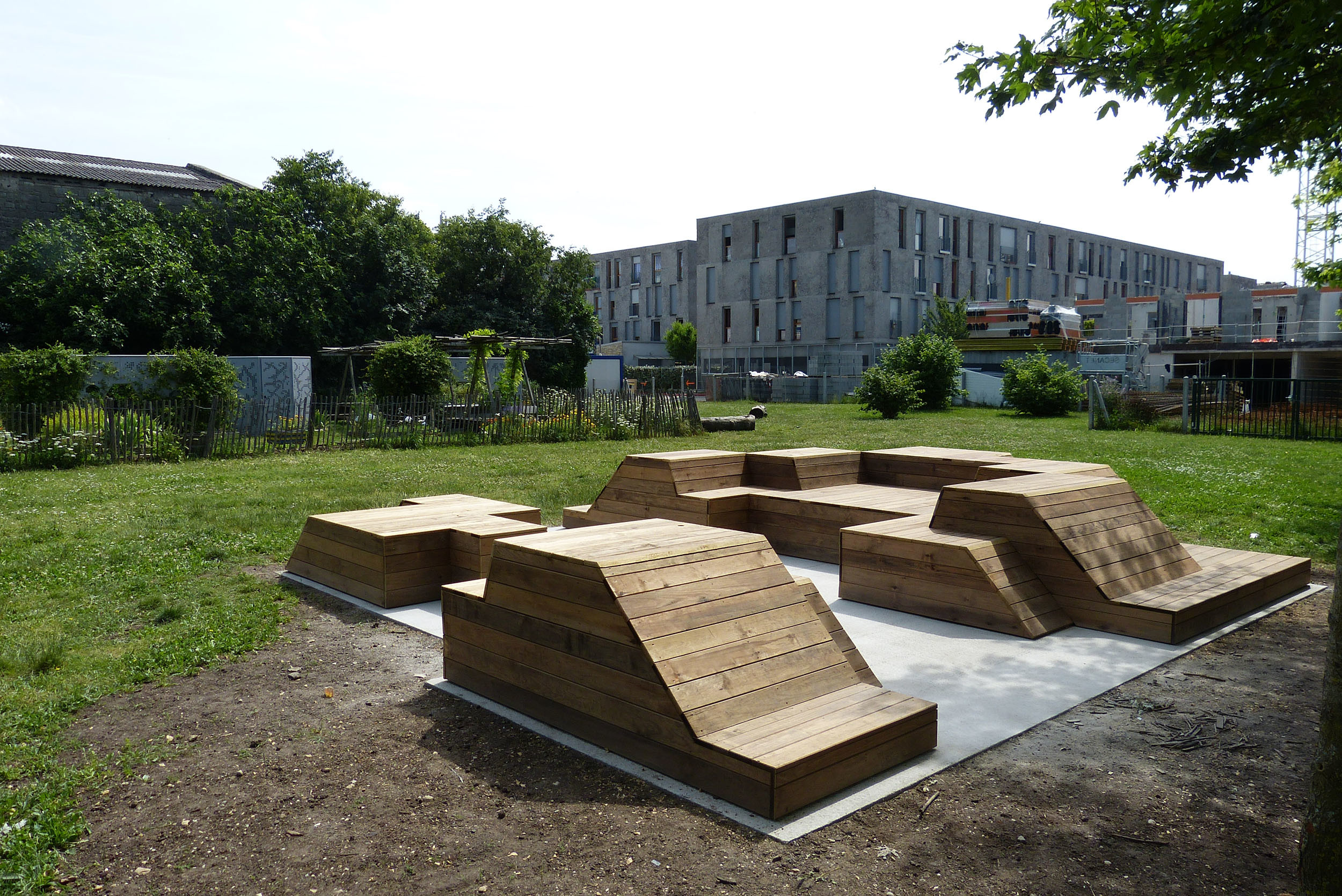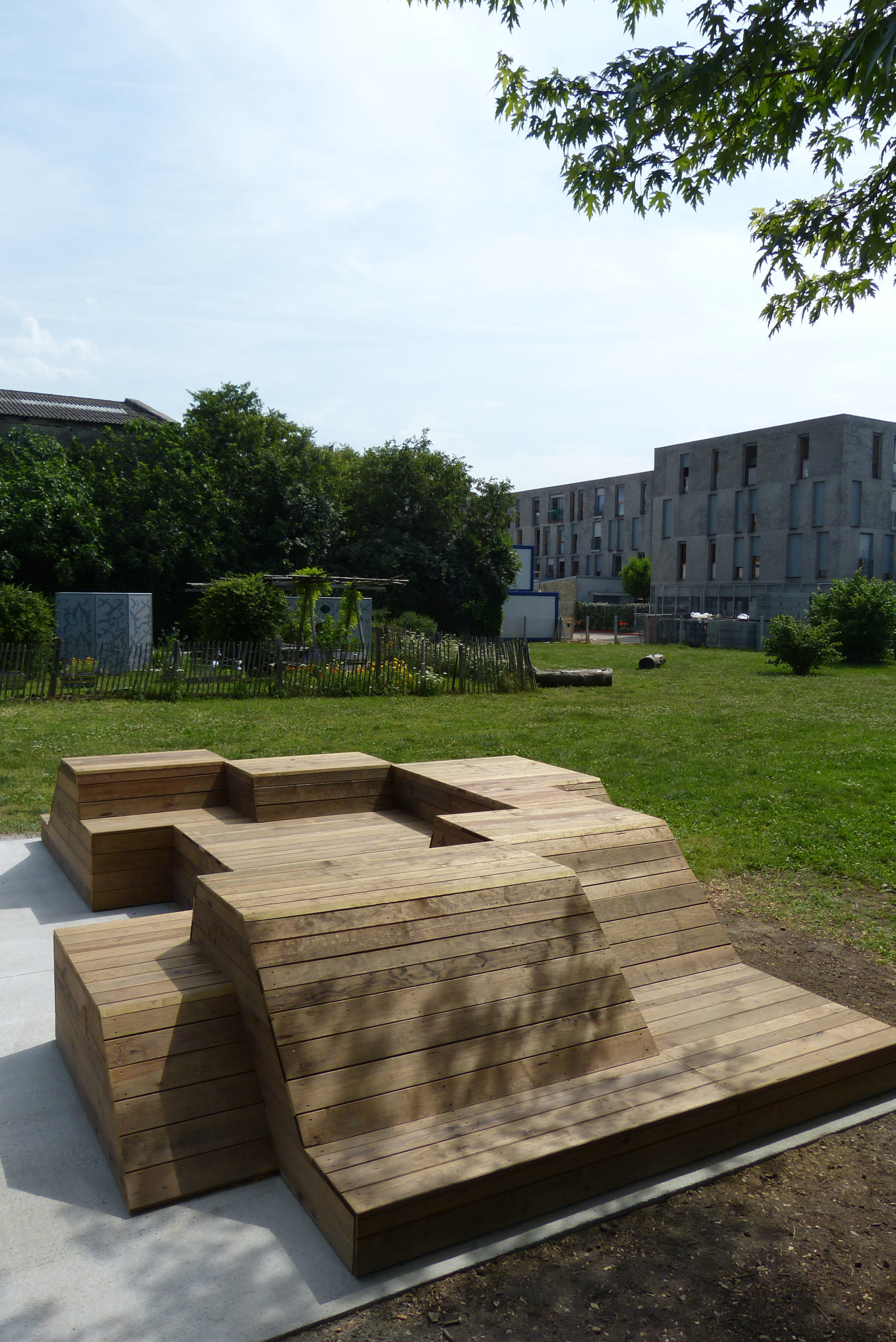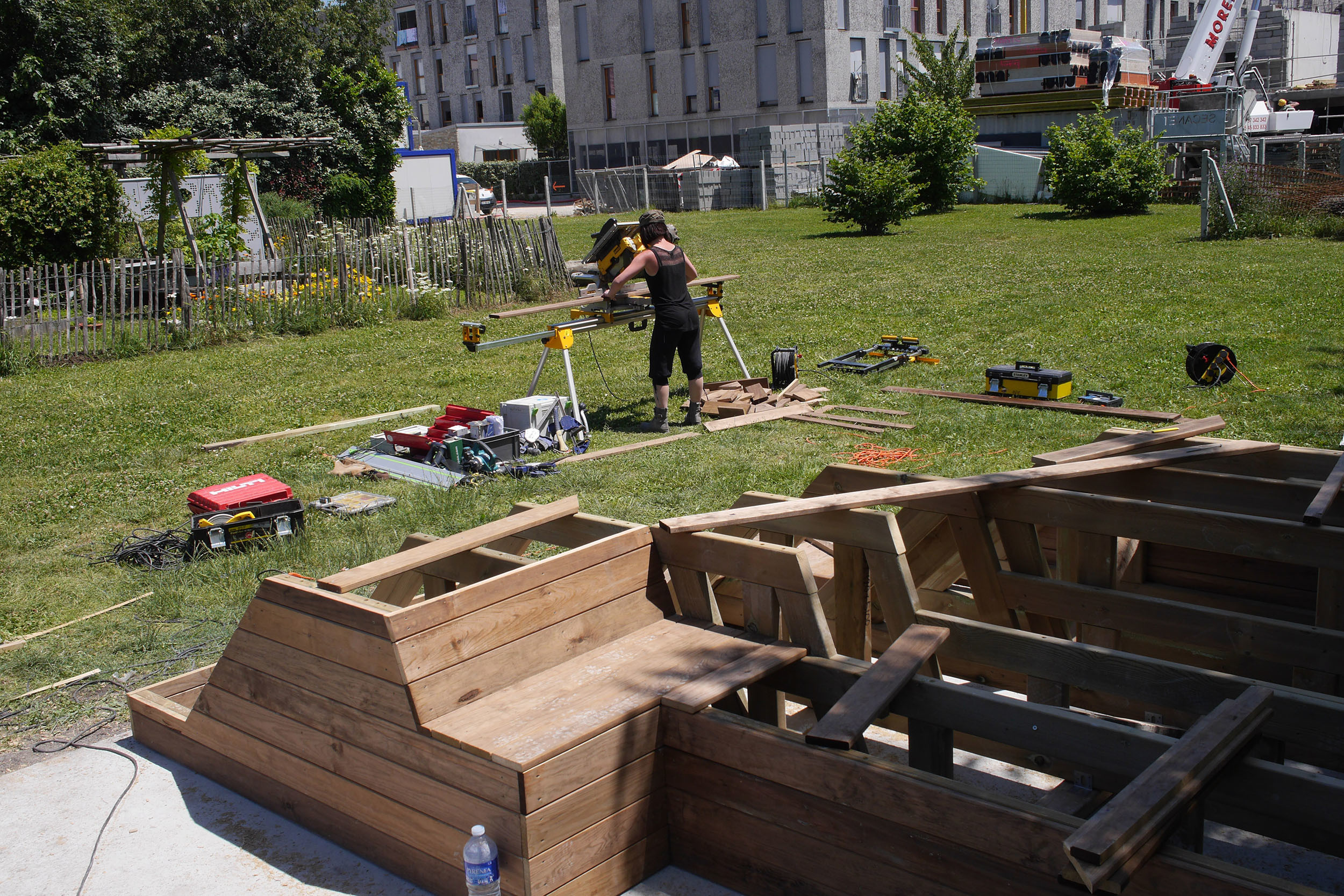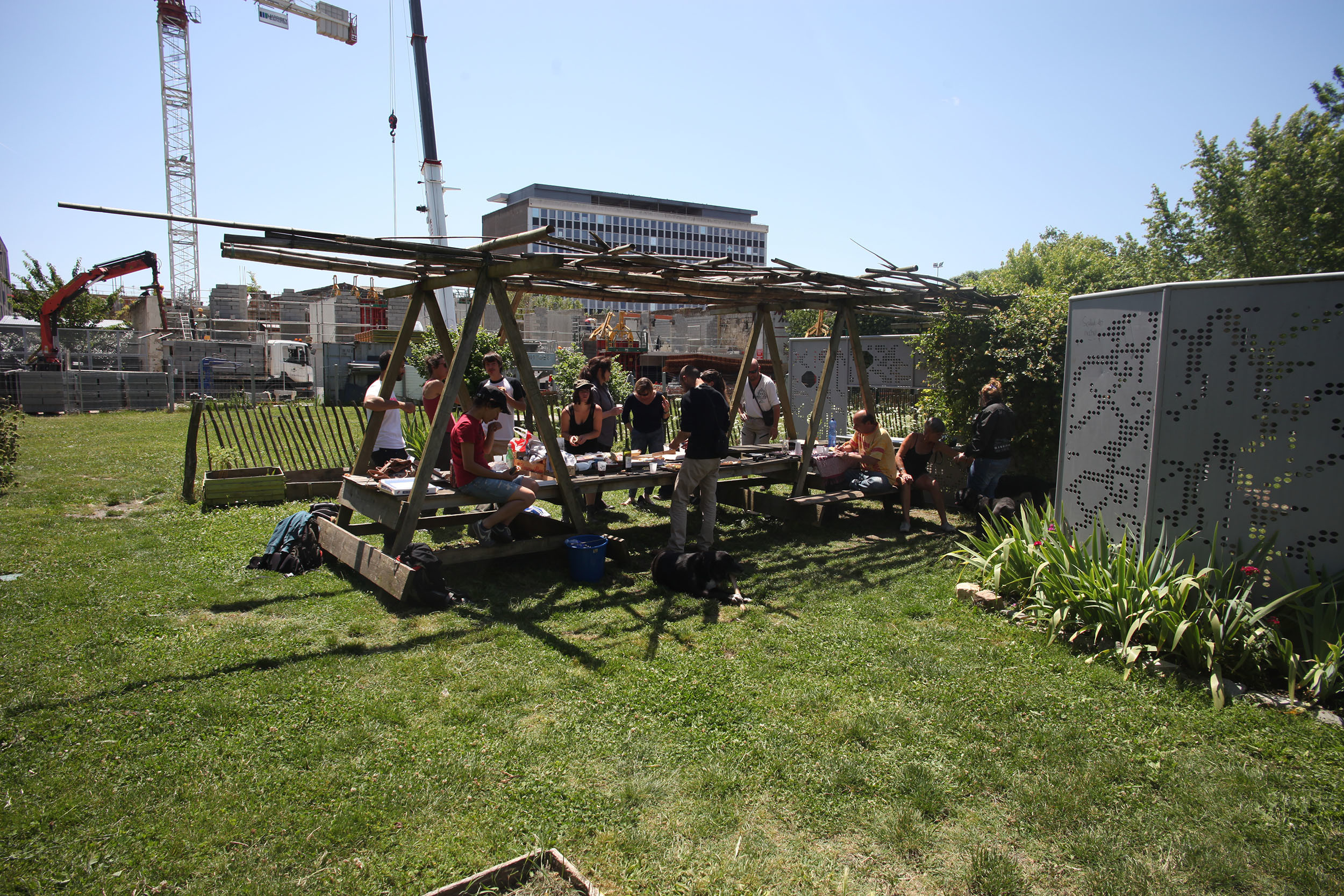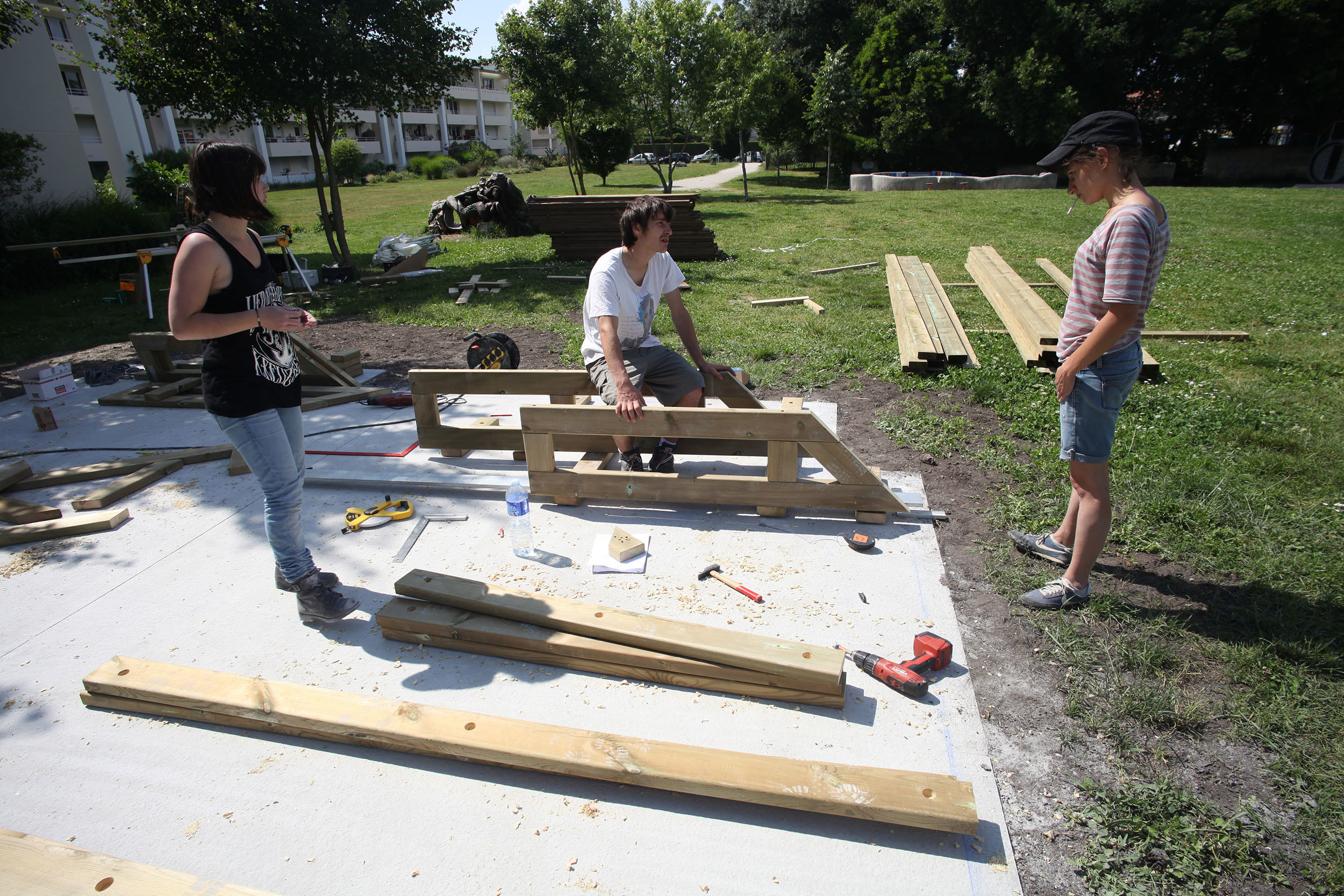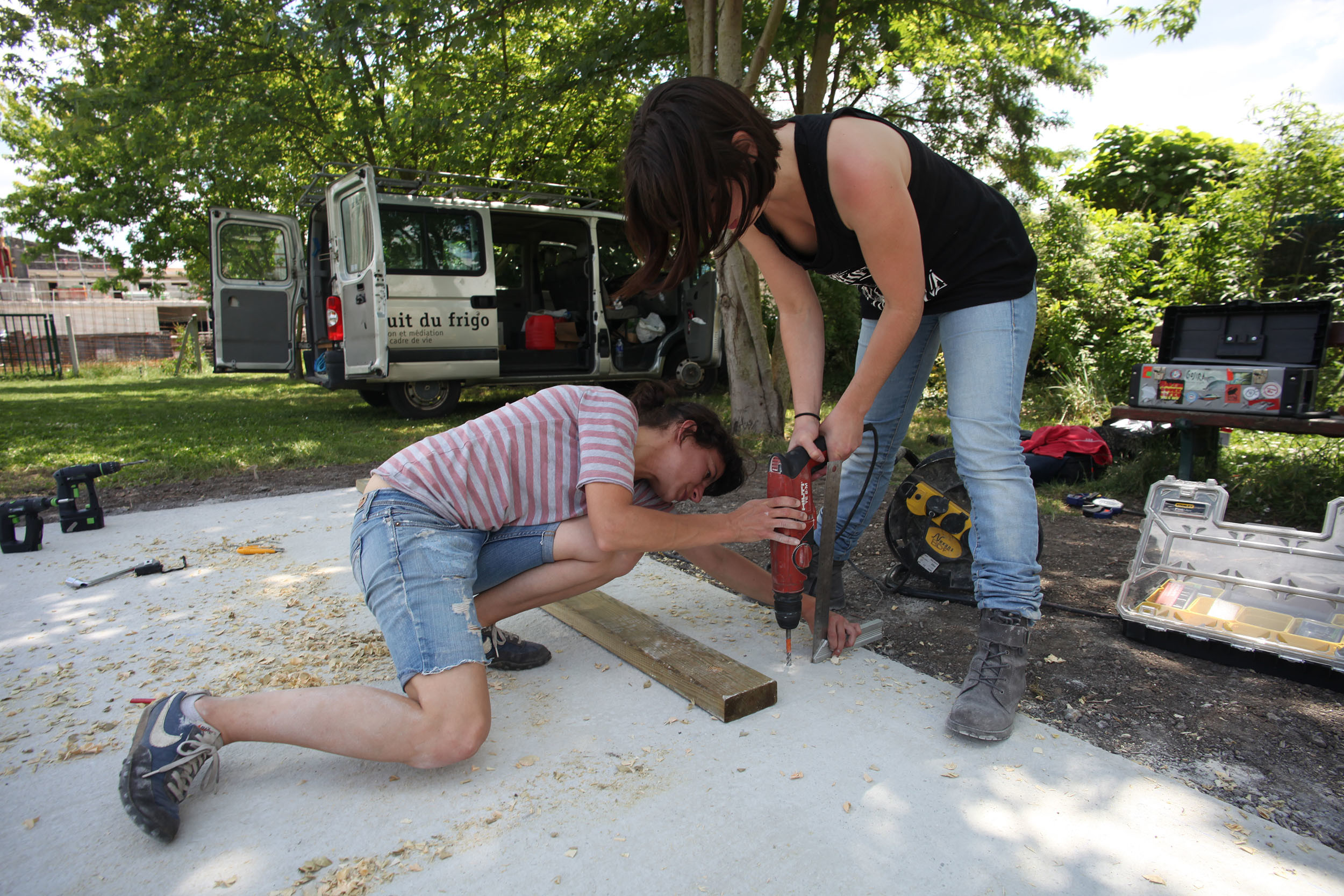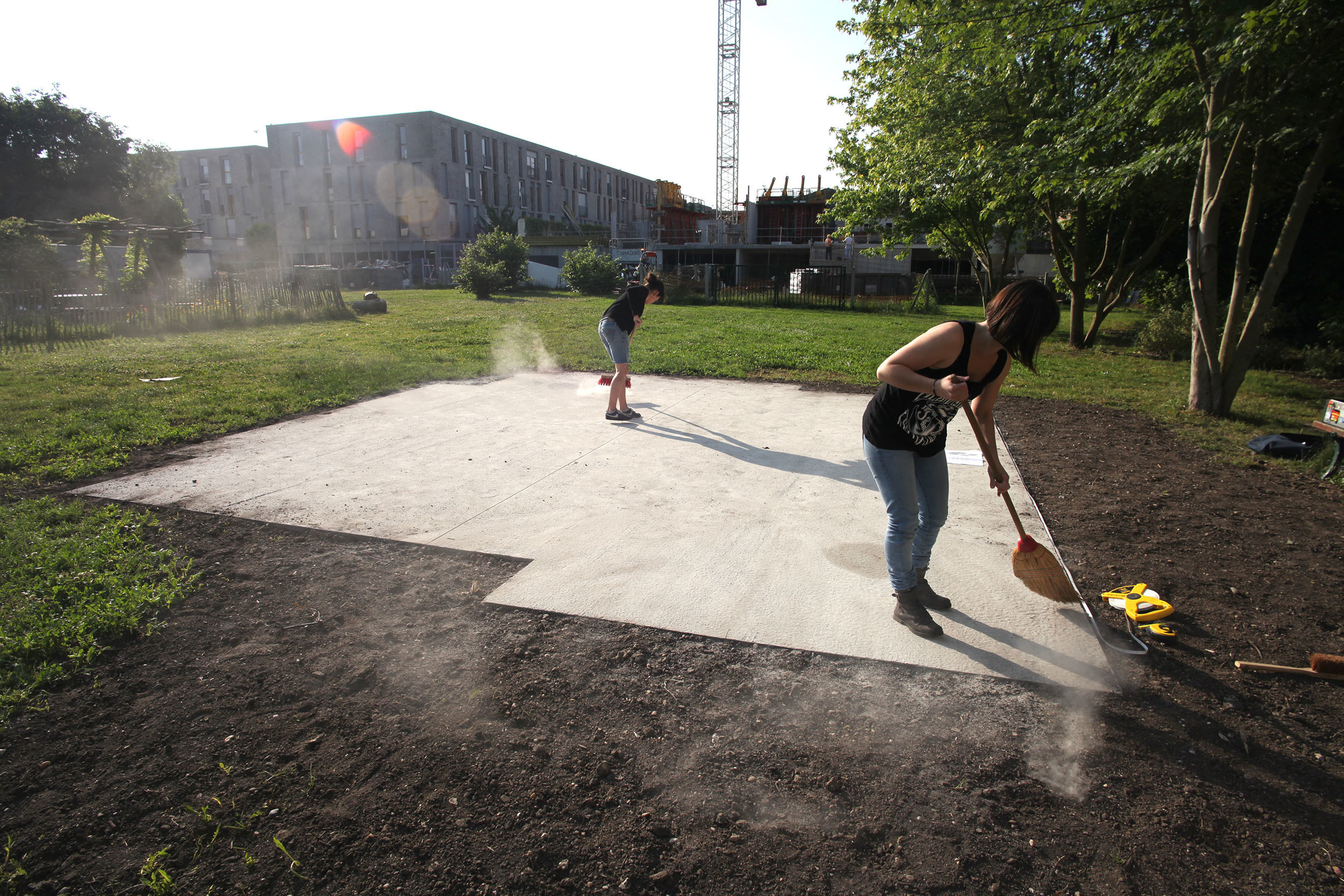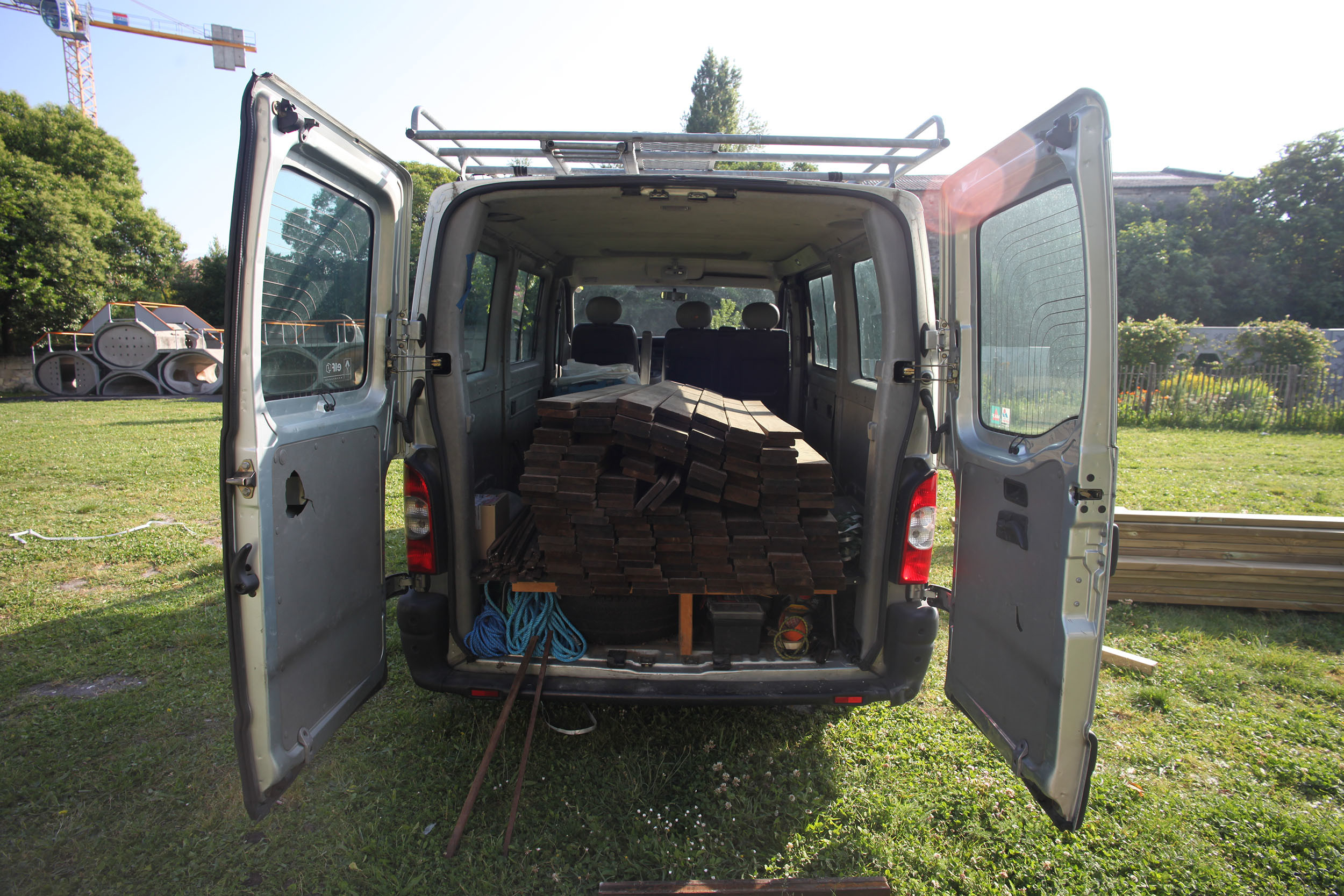
June 2014
Reading lounge
Jardin de ta sœur
Bordeaux
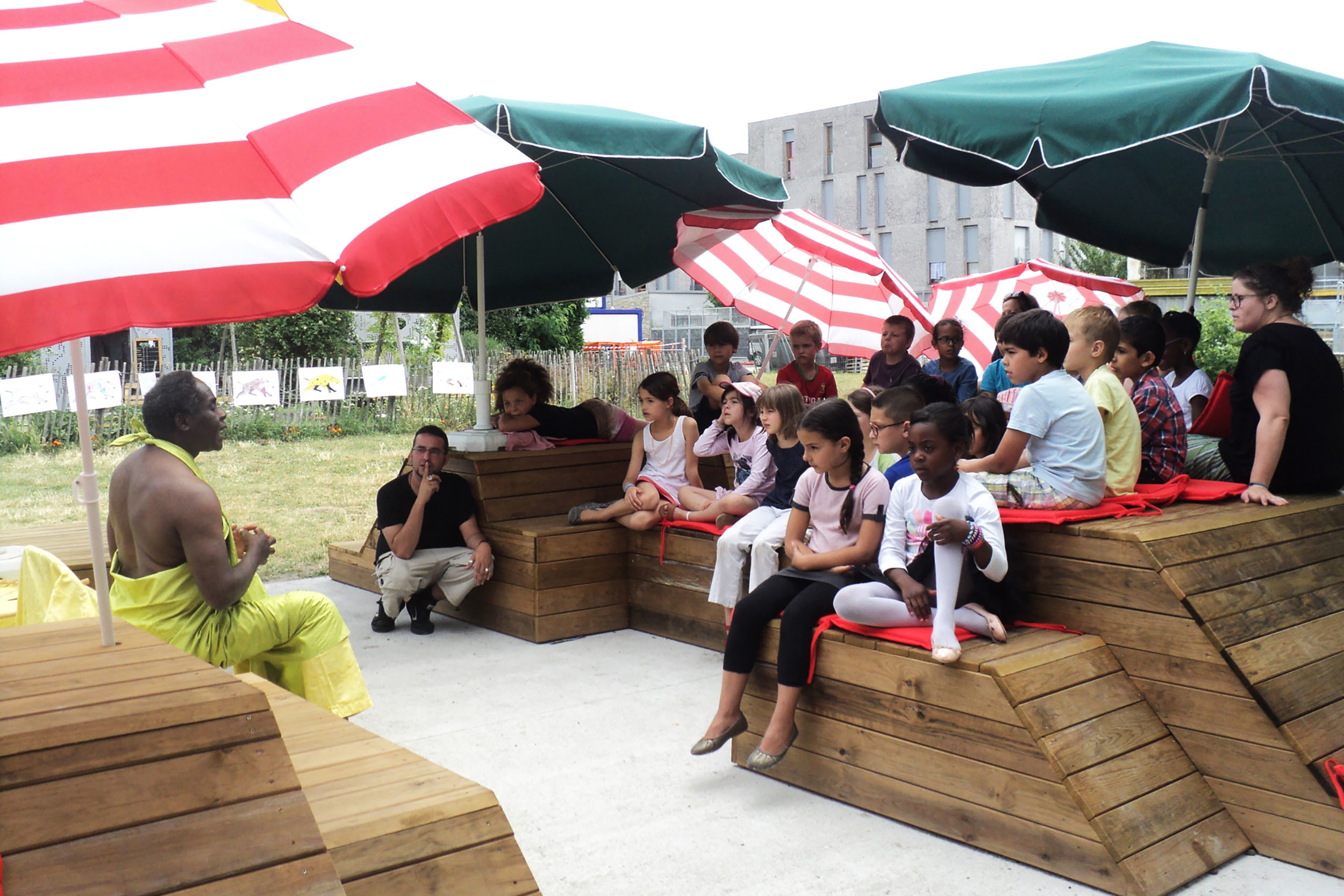
A shelter to read
The association Quai aux Livres has been campaigning since 1993 for the establishment of a library in the Bordeaux Nord neighbourhood. After having carried out a first experiment of ephemeral library in 2007, the association wishes today to create in the public space a permanent place dedicated to reading. “A meeting place open to all and which would be regularly animated by the desire to read…”.
The Reading Lounge (Salon de Lecture) allows the association to organize events around a convivial and poetic place that can accommodate up to 25 people. This “reading shelter” offers different configurations : reading can take place in the centre, on the modules or even around the structure. The inclinations allow to sit in different positions (lying down, leaning back, sitting in a suit…) to adapt to the comfort of each person for an individual or collective reading time.
The Jardin de ta Soeur (“Your Sister’s Garden“)
The Reading Lounge is located in the Jardin de ta Soeur, a public park in the Bordeaux North neighbourhood. This garden has a special history. It is the result of a citizen’s struggle led by a group of inhabitants and associations, of which Quai aux livres is a part. We began occupying the land in 2003, then accompanied the collective during the first years. Since 2005, the garden project has been supported and carried by the city of Bordeaux.
One of the principles of the development of the shared garden wanted by the collective is to imagine furniture and equipment (benches, tables, games…) as unique pieces, works of art designed and manufactured in a participative way with the help of invited artists. The garden has thus been embellished with a bench-sculpture, a playground and a vegetable garden. The Reading Lounge completes the garden’s heterogeneous collection.
Last
projects
> all projectsAt the crossroads of art, territories and populations, our approach aims to promote the transition to sustainable, shared and welcoming cities, by proposing alternative ways of imagining and building our living environment and by exploring new forms of public space.

Bordeaux grow nature
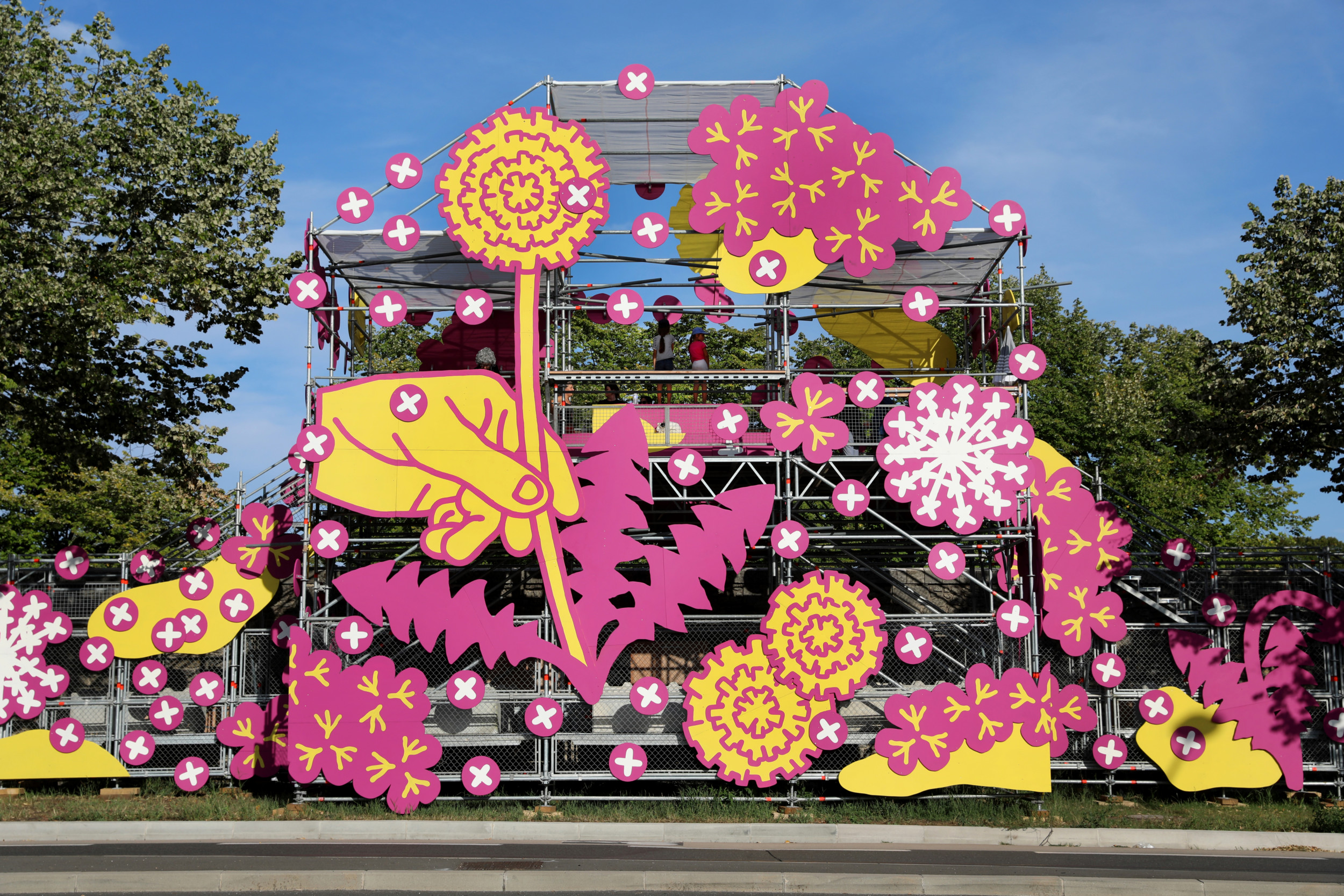
Beyond the boulevards
Bordeaux – France
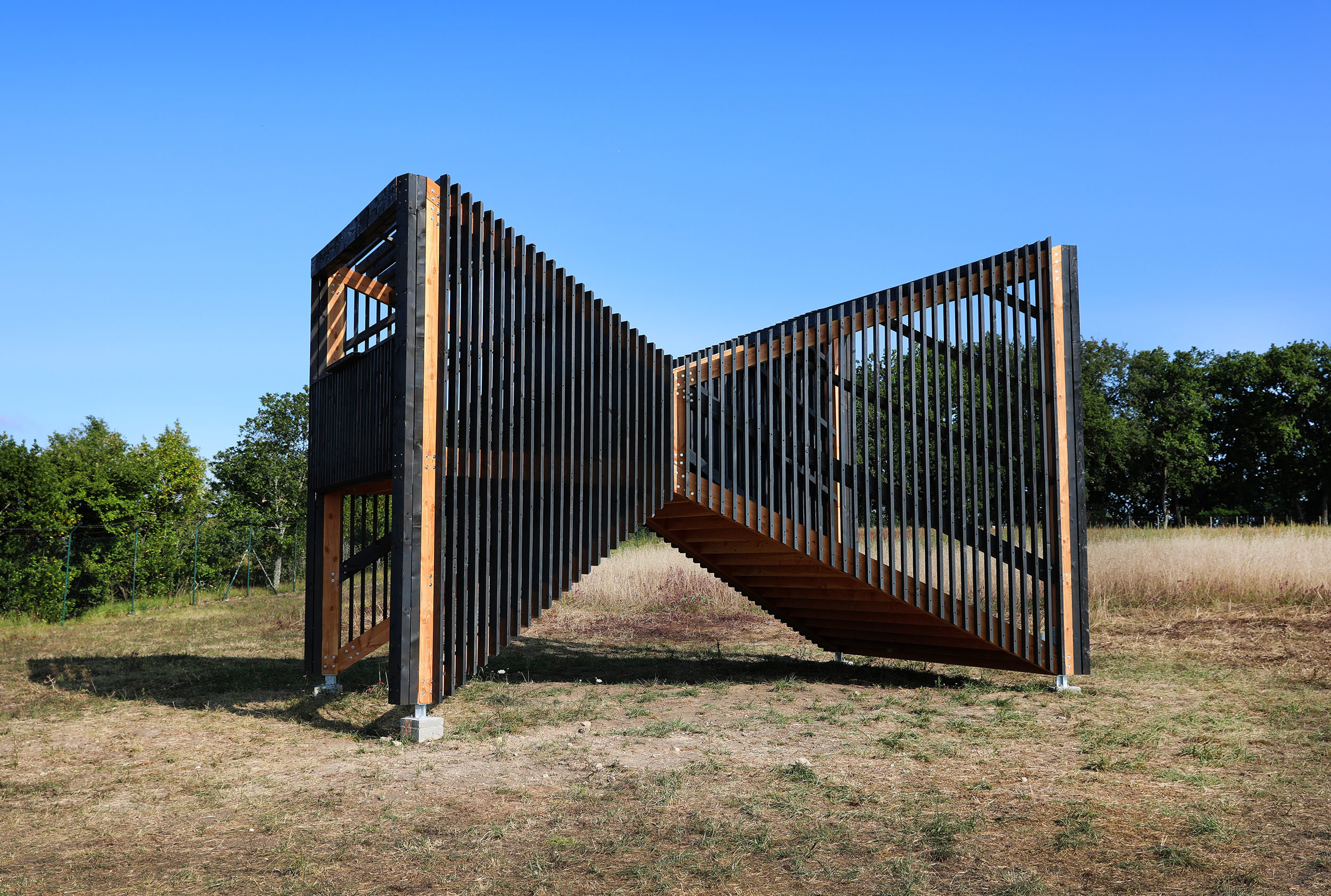
The Koniscope
Cubzac-les-Ponts – France

Lacanau Bench
Lacanau – France
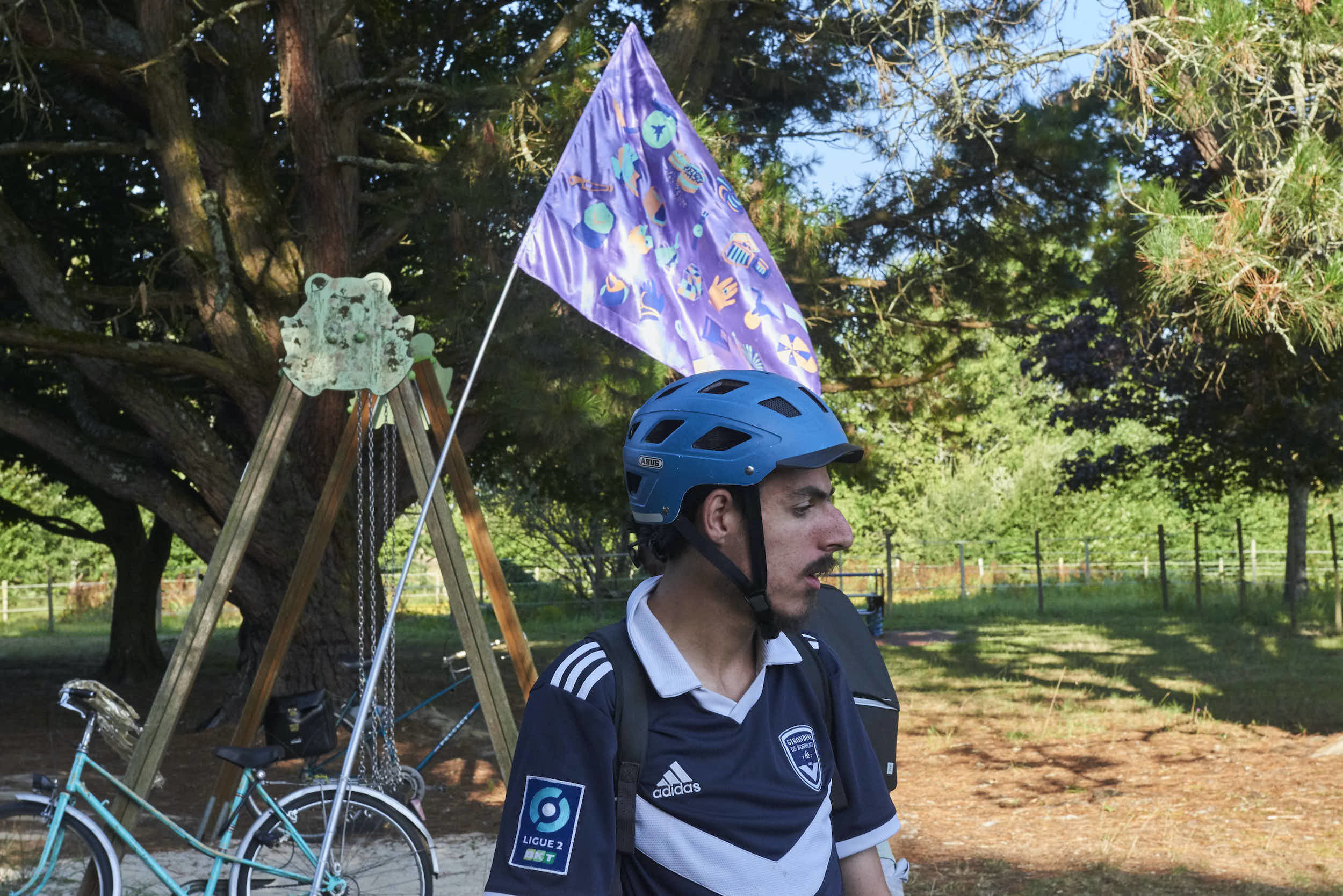
On vacation with Jeannie L
an artistic bicycle epic Bordeaux - Créon - Sauveterre de Guyenne - La Réole (Gironde)

LUMI
place in transition Bordeaux – France

Place Commune
Toulouse



